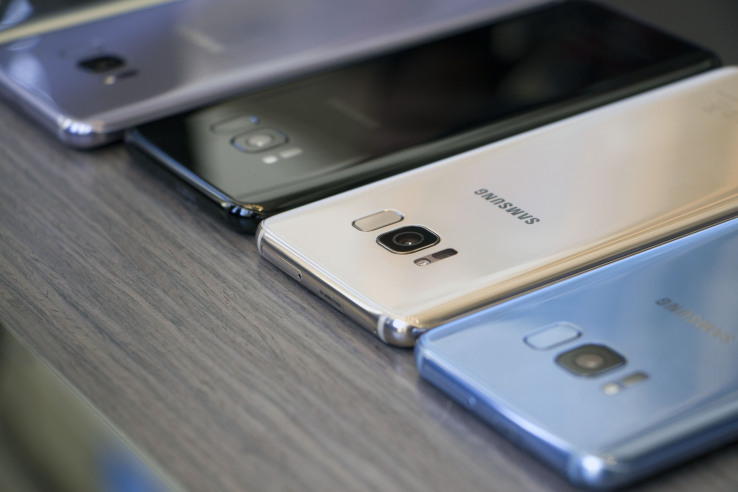

Samsung promised a revolution today. The company opened today’s Unpacked event by contextualizing the history of mobile phones, from the 1980s to today. The conceit was simple: Today’s big announcement marks a step in cell phone evolution akin to the jump from the Zack Morris brick to the flip phone or the clamshell to the smartphone.
What it delivered was a phone with fewer bezels.
Maybe that’s a bit unfair. The Galaxy S8 looks like a great new flagship and a return to form for the company. It’s got a lovely design and some cool features. It’s a great culmination of the hardware and design work the company has been perfecting over the past few generations, coupled with new features like Bixby that lay the groundwork for upcoming devices. It’s pretty much exactly what a company should shoot for in a flagship. And yet Samsung somehow managed to oversell it in the process.
After a brief mention of the “tough” year the company had experienced (a theme it would briefly return to a few more times over the course of the one hour-plus event), DJ Koh, the company’s head of mobile, told the audience at Lincoln Center, “Today we are here to celebrate a milestone. Not just the launch of a great device, but the beginning of a new way to experience the world. A world where boxes no longer define us and barriers that once stood in the way have been removed.”
It’s the sort of statement you make before unveiling the printing press or the cotton gin — not a handset with some added screen real estate. Granted, Samsung has been extremely vigilante in its ongoing war against the bezel. The company has taken great strides to eliminate the scourge from the face of the earth, and the S8 and S8+ go even further than the edge line before them… but to cast the phone as the next major turning point in the advancement of mobile communication ultimately does a disservice.
Much of today’s presentation revolved around the notion of “unboxing[ing] your phone,” a simultaneous play on the company’s “Unpacked” events and a nod to the aforementioned removal of barriers that will be great if you pony up the cash for a new Samsung flagship. Of course, tech companies have never been great at tempering expectations, and Samsung, much like Apple, has built its image around the notion that every subsequent product will be the one that truly changes its users’ lives once and for all.
If there’s a box Samsung was breaking out of here, it was the tone of penance that defined its last few big events, each of which opened on a somber note and a promise to do better. Today, however, it felt as though the company had finally shaken off those shackles for good in an act of redemption that wouldn’t come from investigations or newly implemented safety regulations, but from the first major new phone it’s released since the whole Note 7 kerfuffle went down. Now that eight-point safety check isn’t a defense or a response — it’s yet another in a long line of features the company can boast of adding to its new handset alongside a bigger screen and in-house smart assistant.
A rep I spoke with ahead of the event summed up the notion nicely, stating, “Some of the key learning takeaways are that as much as we innovate for products and services, we need to do that on safety as well.”
Today’s event marked a remarkable shift that the company hinted at during its CES press event when it floated the notion of “Reach[ing] Higher” in conjunction with both the (then ongoing) Note investigations and its new line of connected appliances.
Samsung may well have overplayed its hand here both as a result of that newfound freedom and the broader notion among tech pundits that there was a heck of a lot more than just the success of a new phone hinging on today’s announcement. Today was regarded by many as the company’s first big chance to right the ship following an ongoing apology tour, and the company seemingly decided that nothing short of a total smartphone revolution would do.
Samsung was right in its assessment today that the smartphone industry has been somewhat stagnant since the original breakthrough of touchscreen devices. There’s been plenty of innovation in the past decade, sure, but aside from some key software breakthroughs like the advent of wide-scale third-party support through app stores, innovation has been gradual in a fast-paced environment.
The company perhaps hasn’t helped its case by showing far-off technologies like flexible and foldable displays over the years — concepts that showcase how far we still have left to go before making the next major breakthrough in the mobile computing form factor. And certainly the tech media has played its part in stoking that fire.
So let’s be perfectly clear: The Samsung Galaxy S8 is a nice phone, but it’s not a smartphone revolution. And whatever your next smartphone happens to be almost certainly won’t be one either. Surely the next great step looms somewhere not too far over the horizon, but we’re certainly not there yet.

